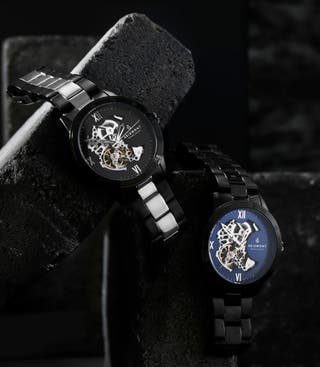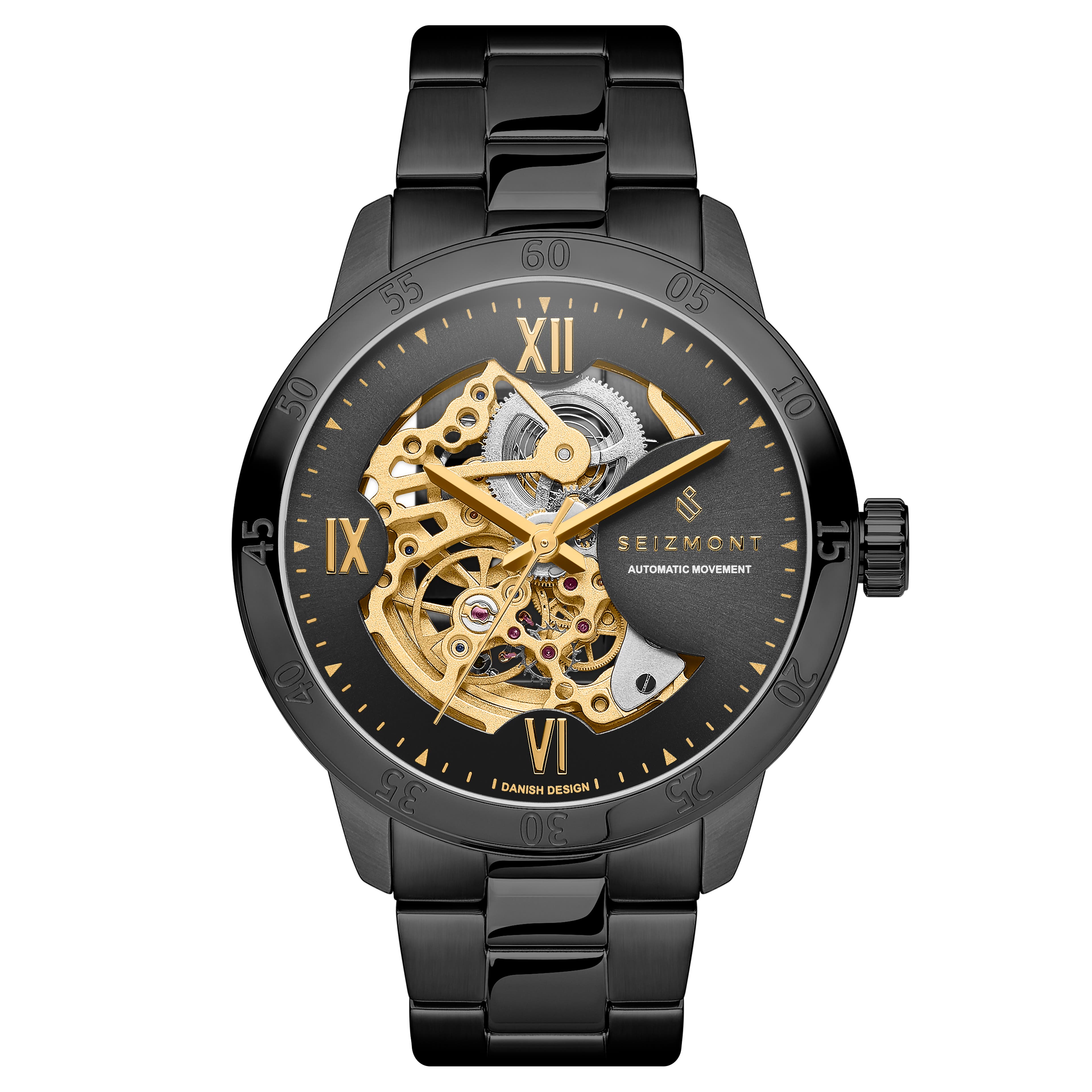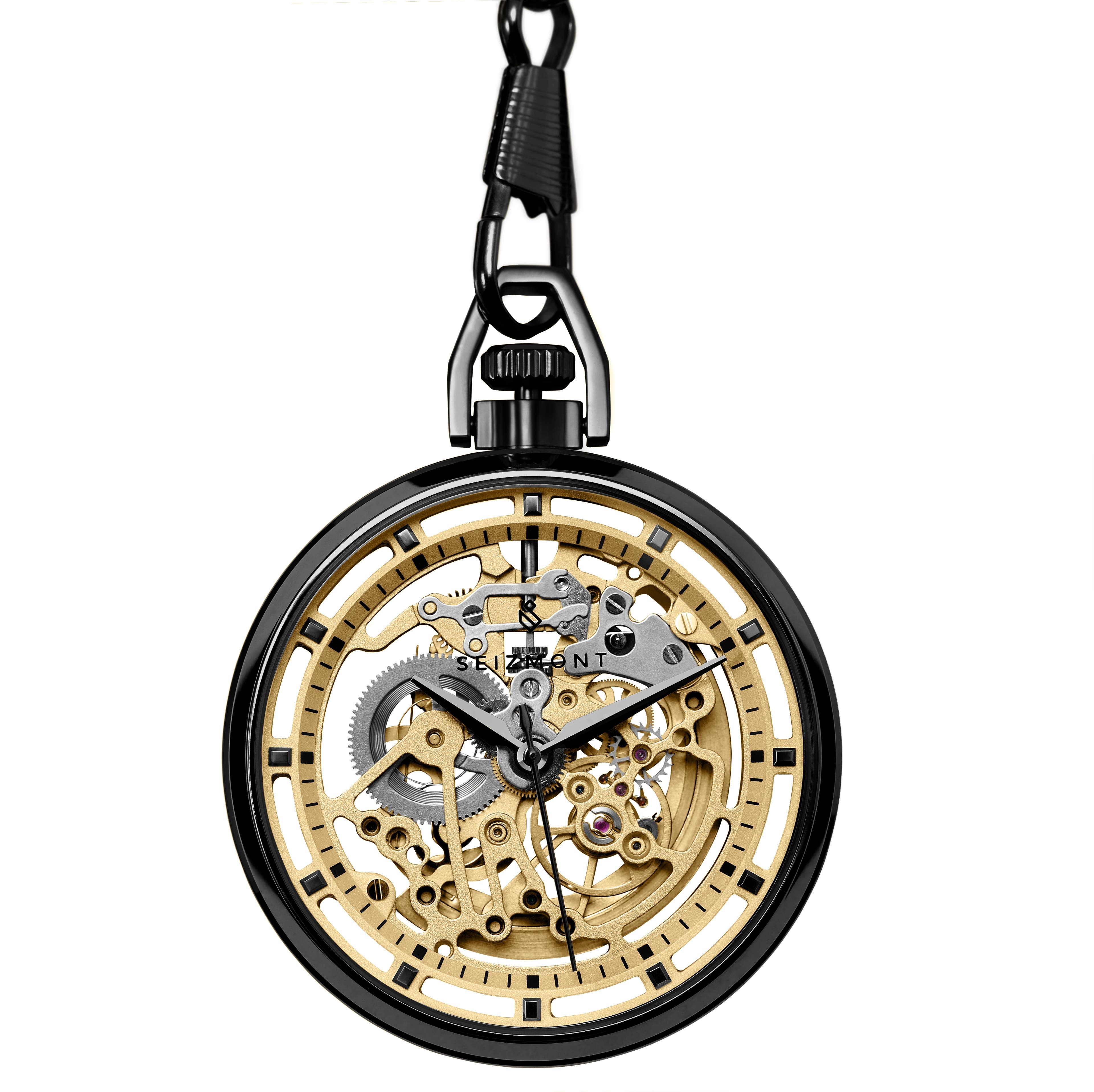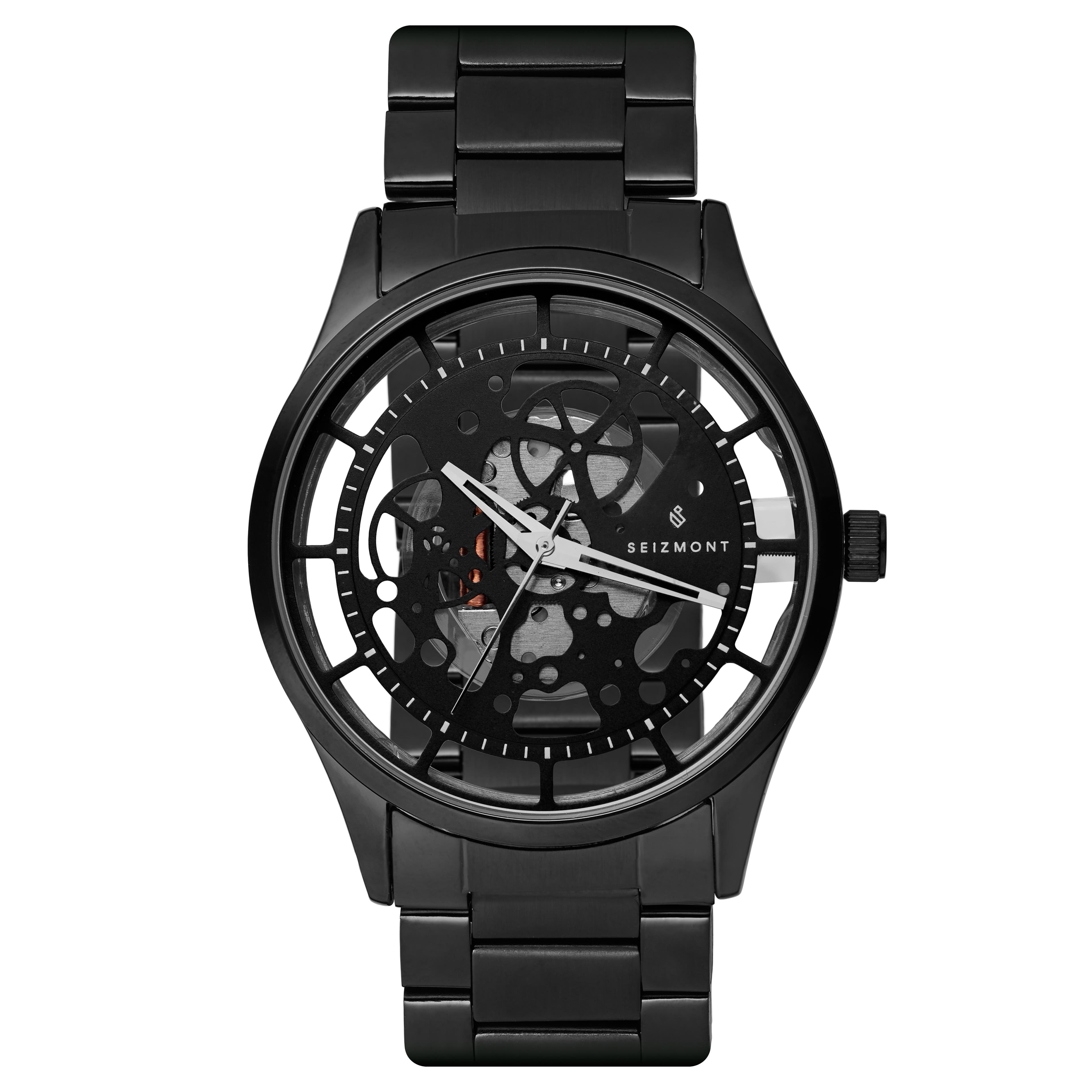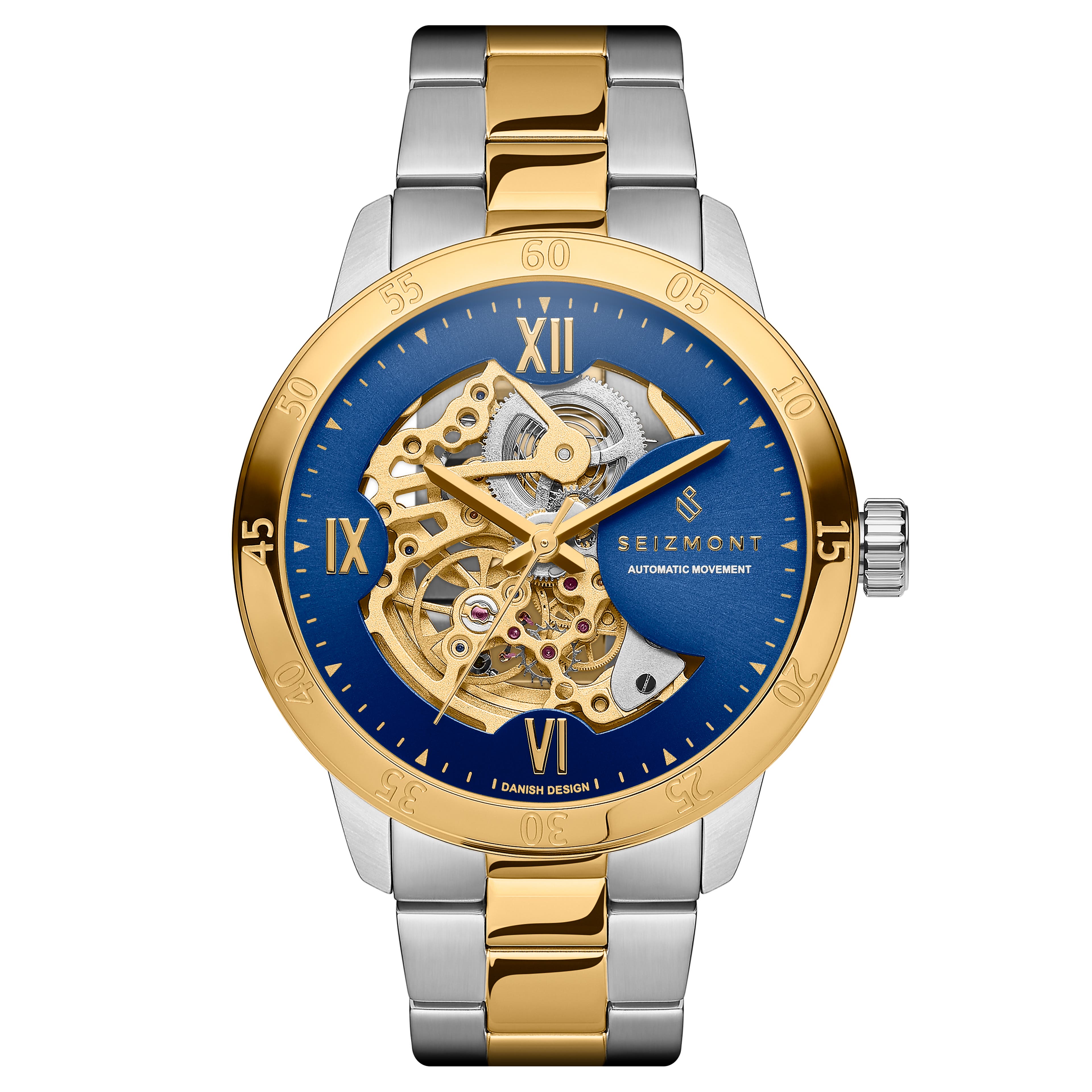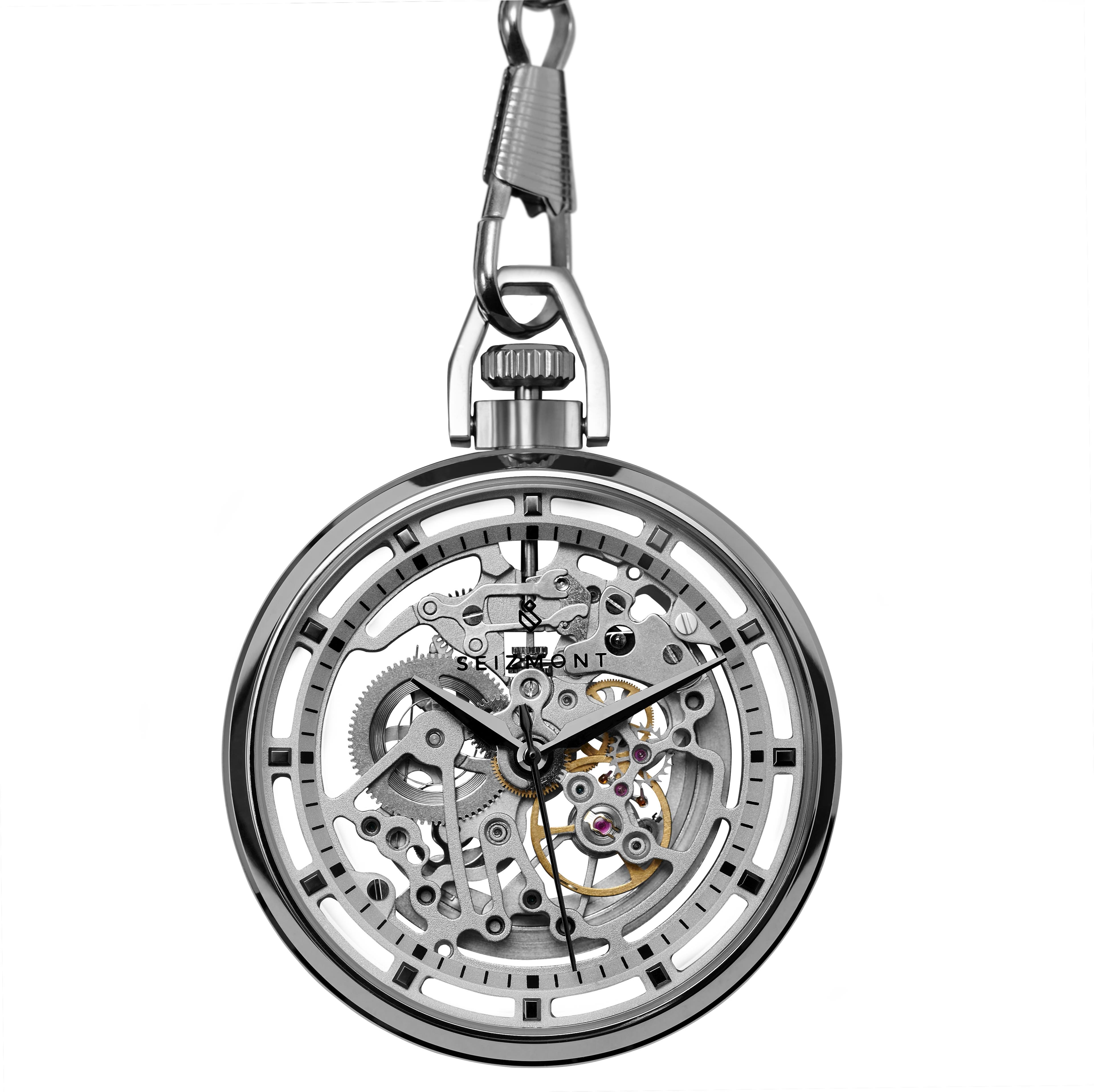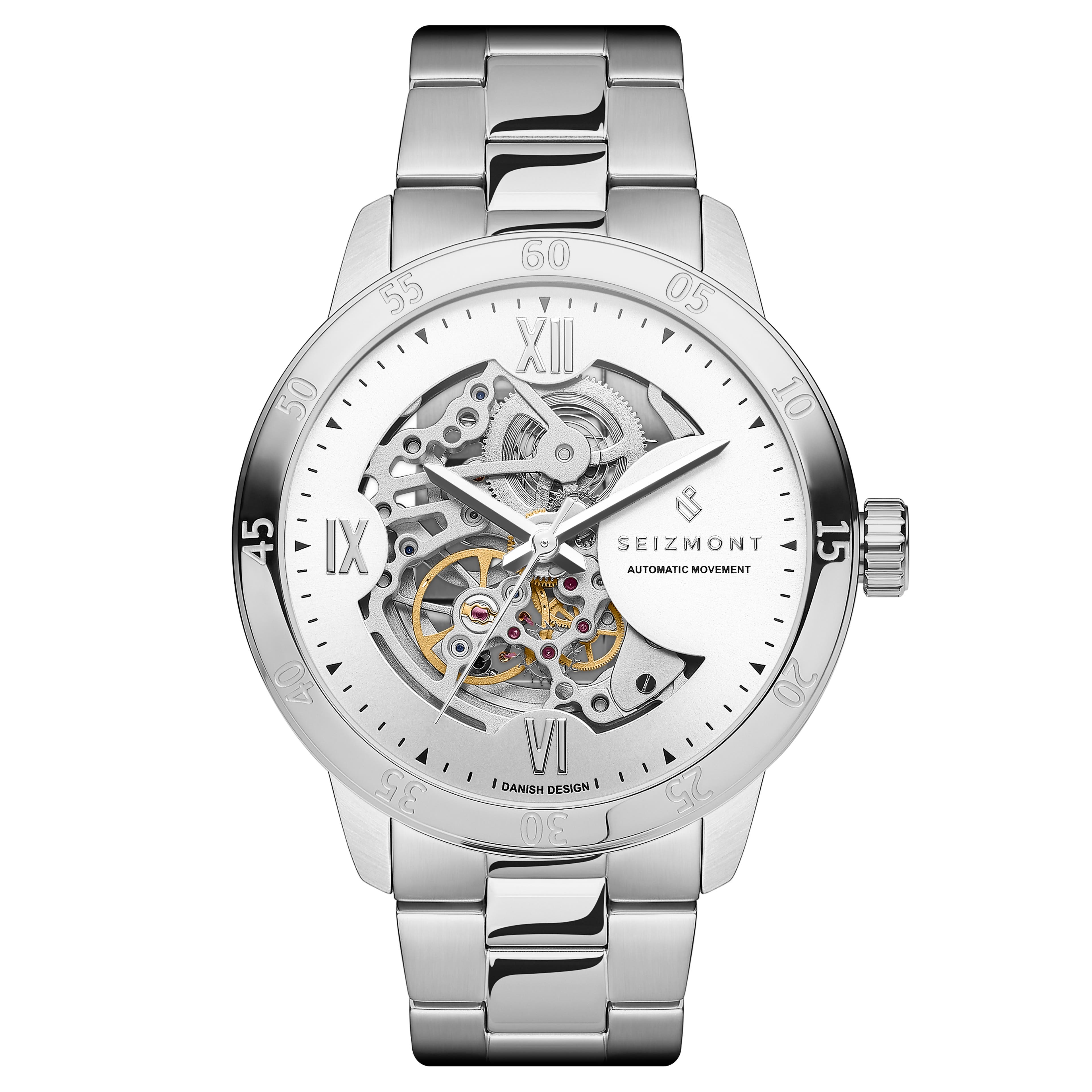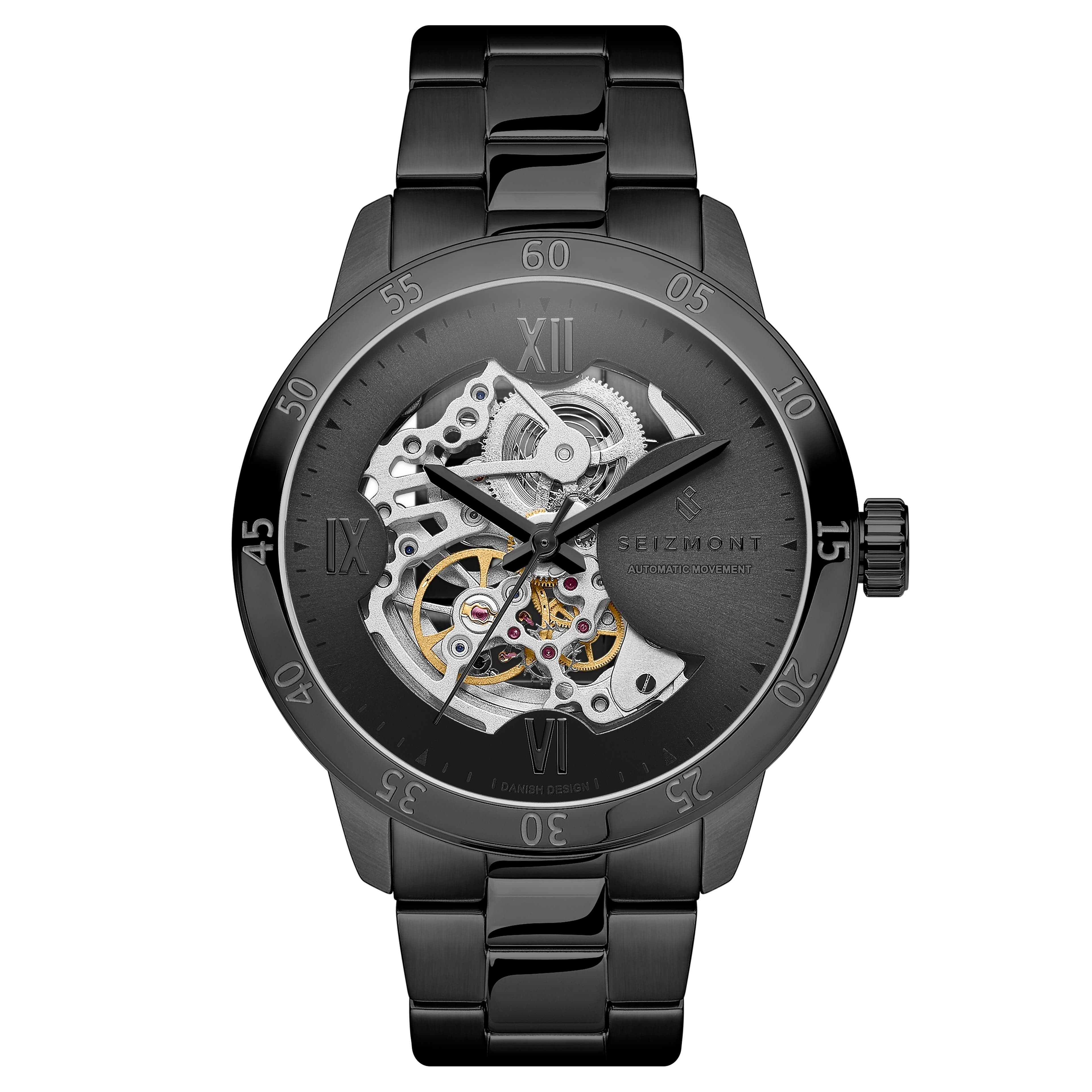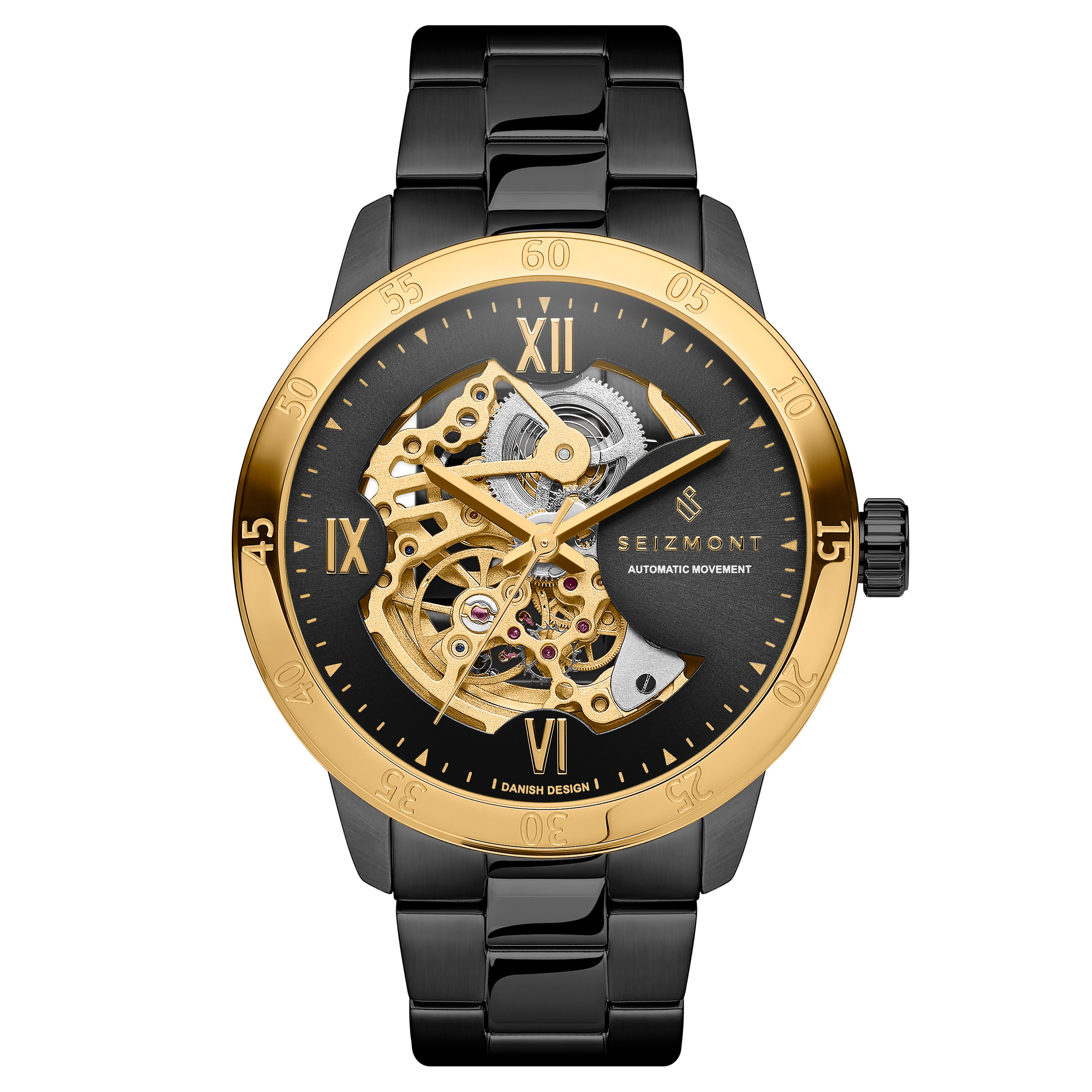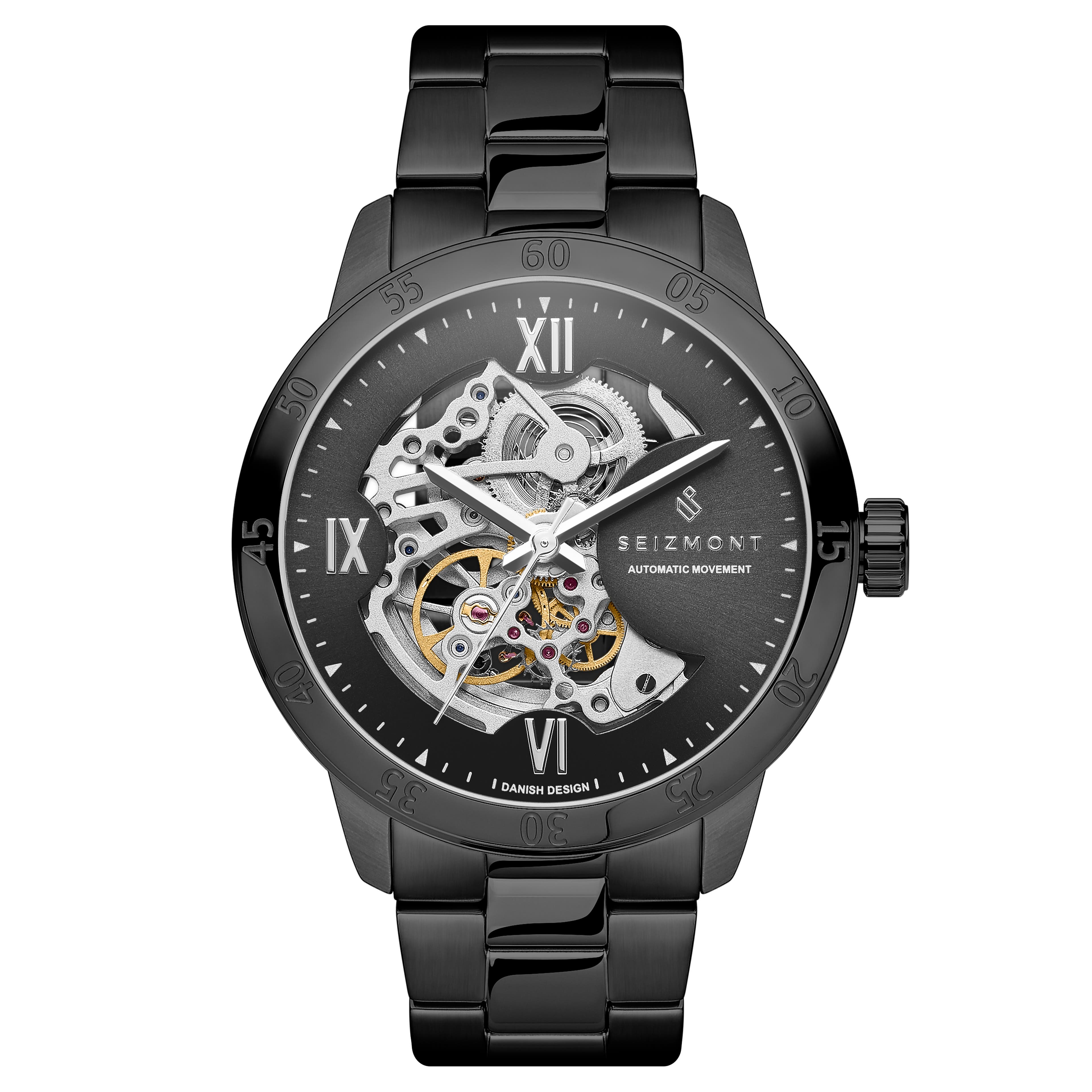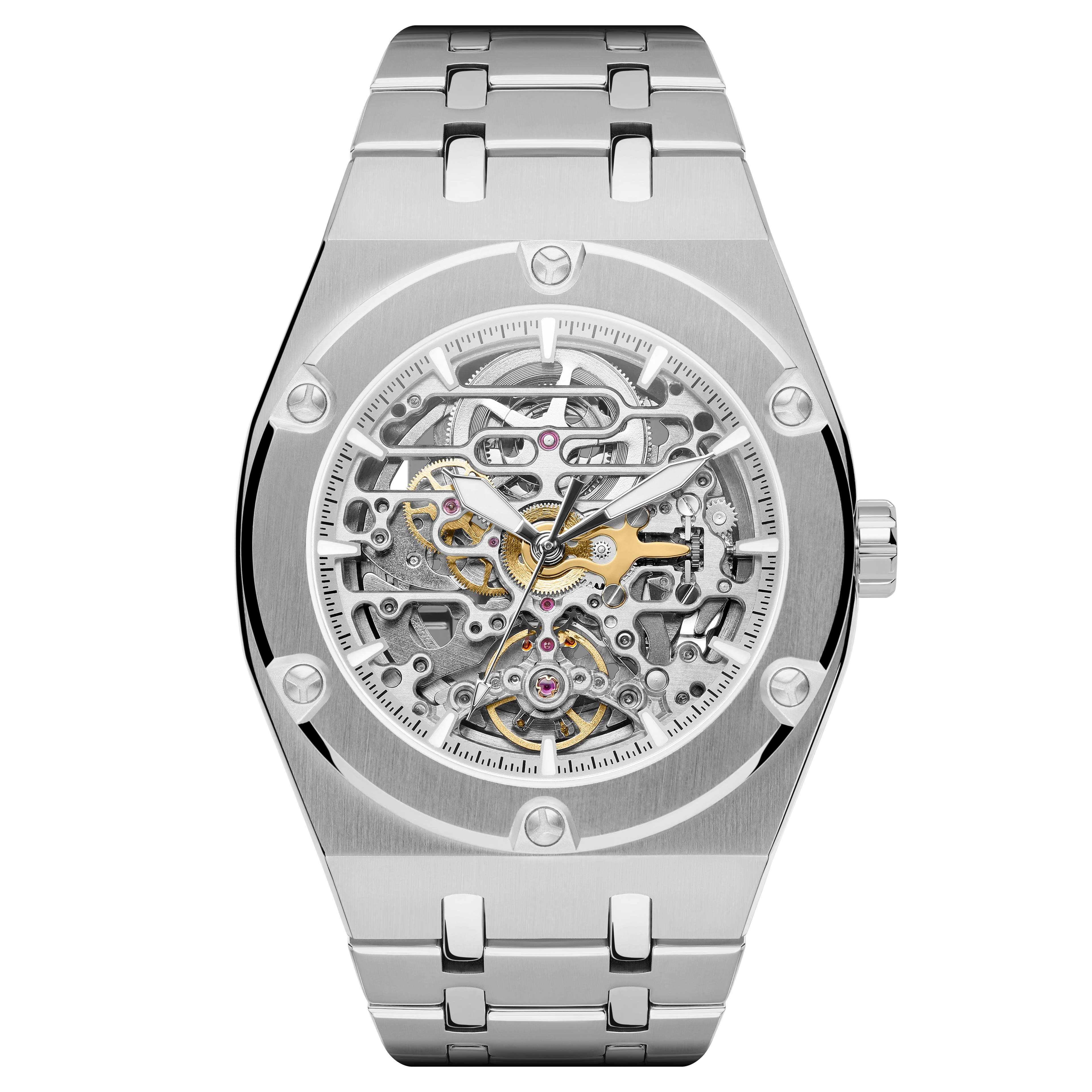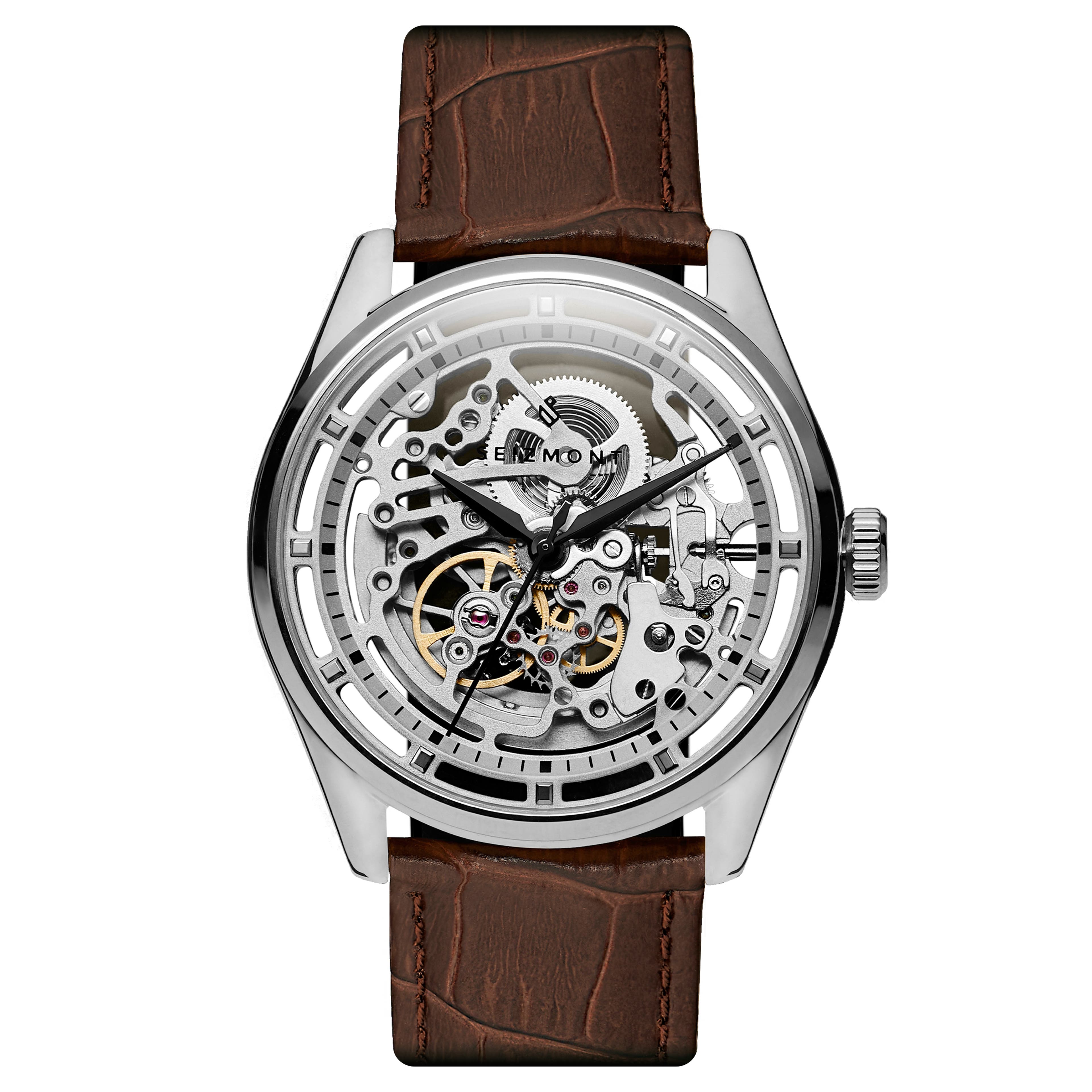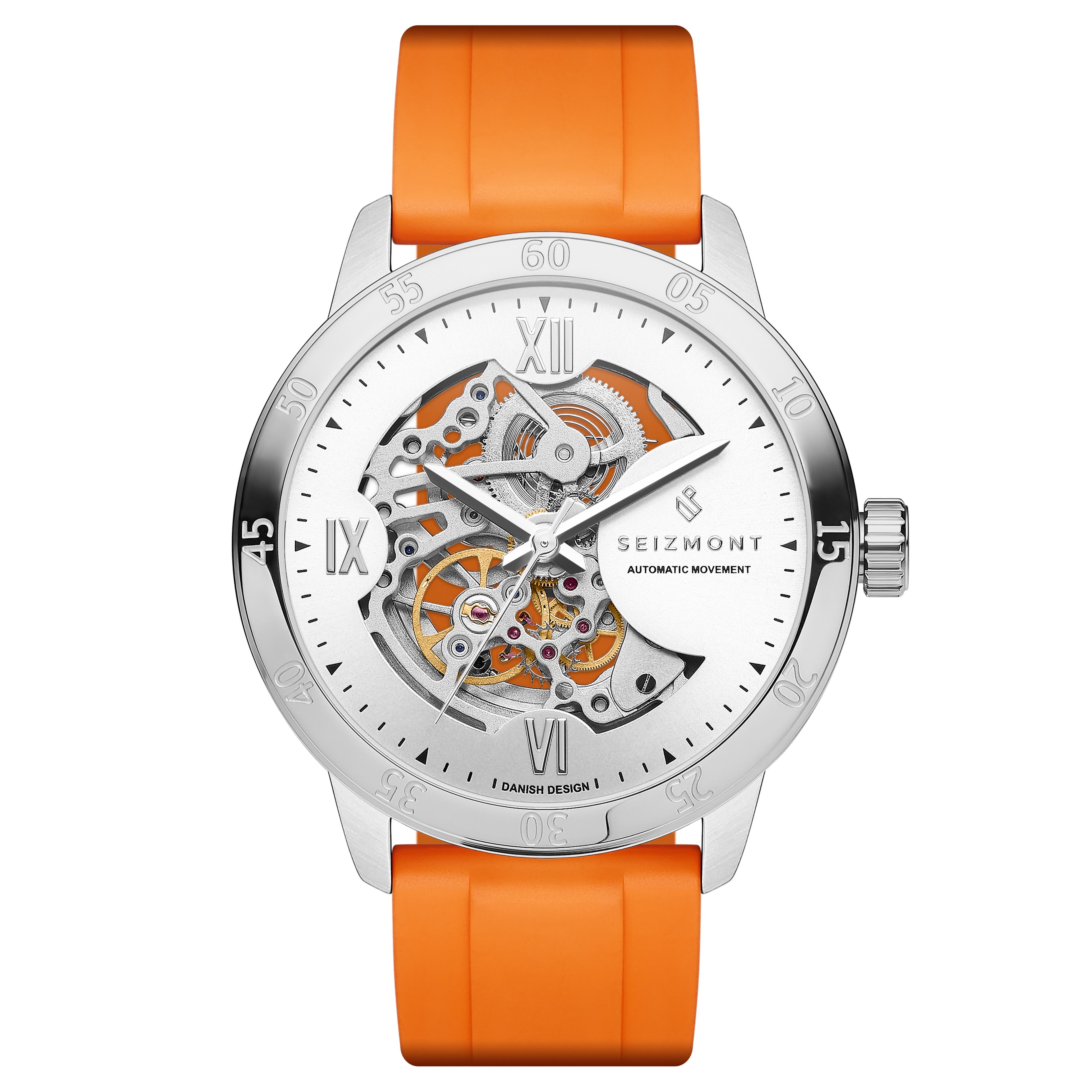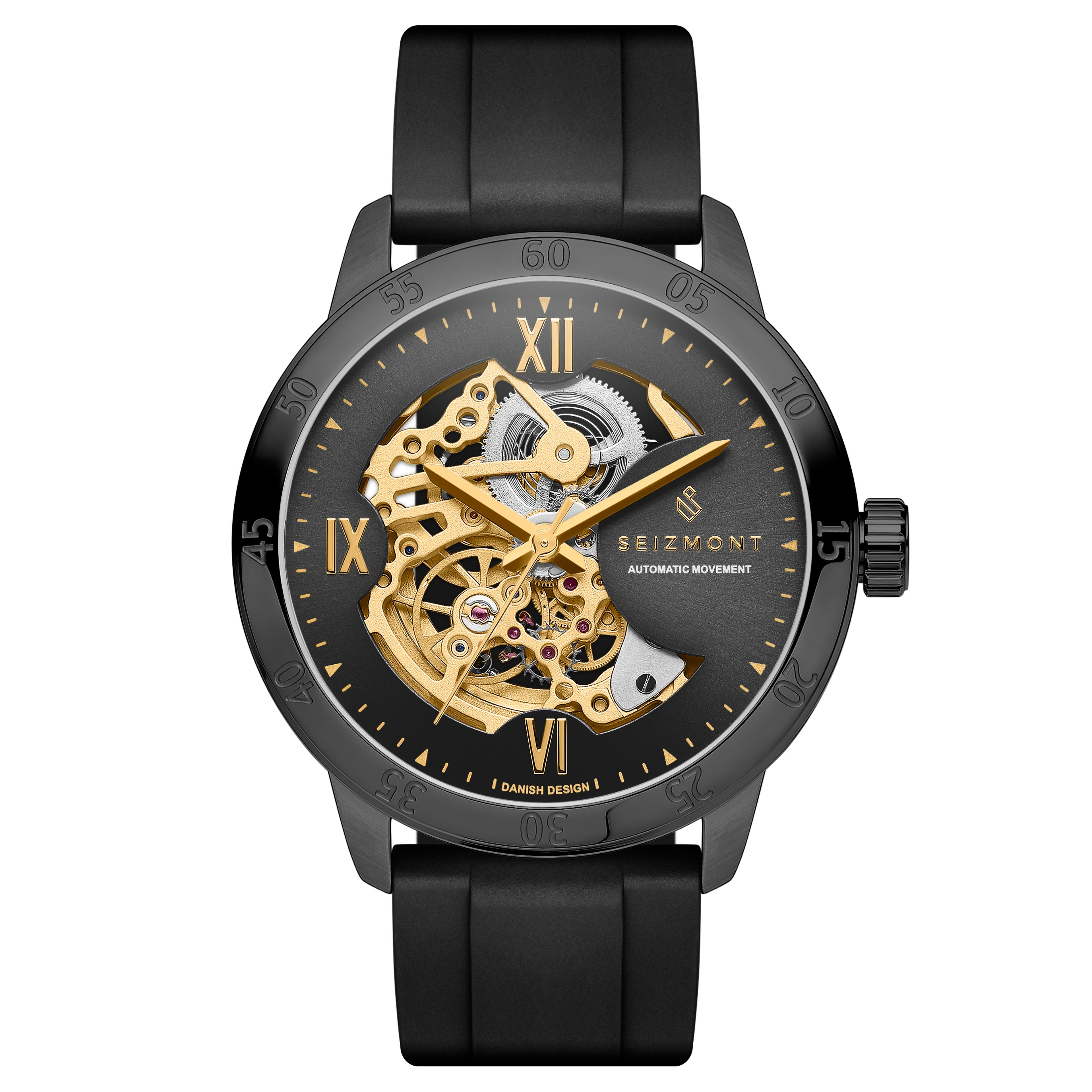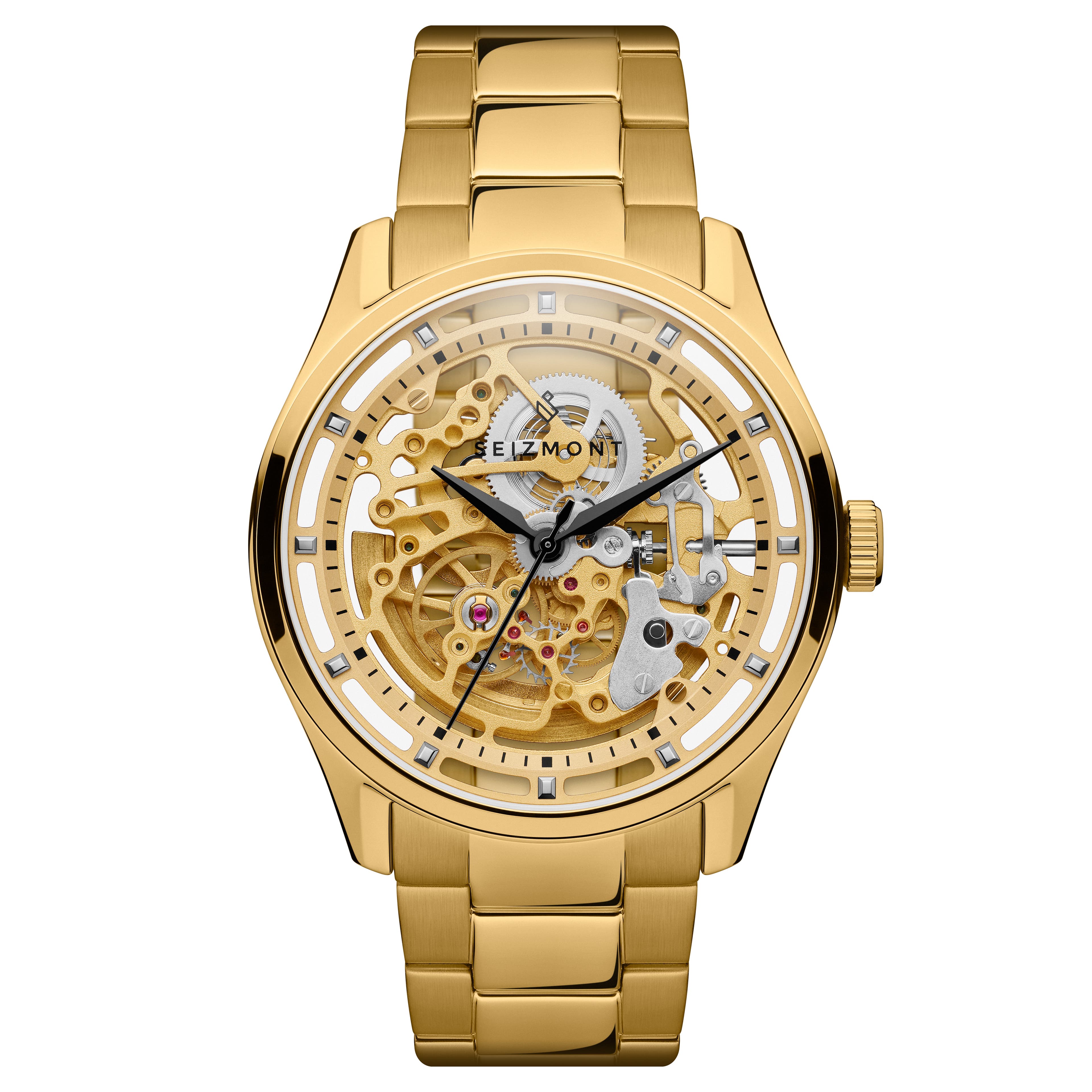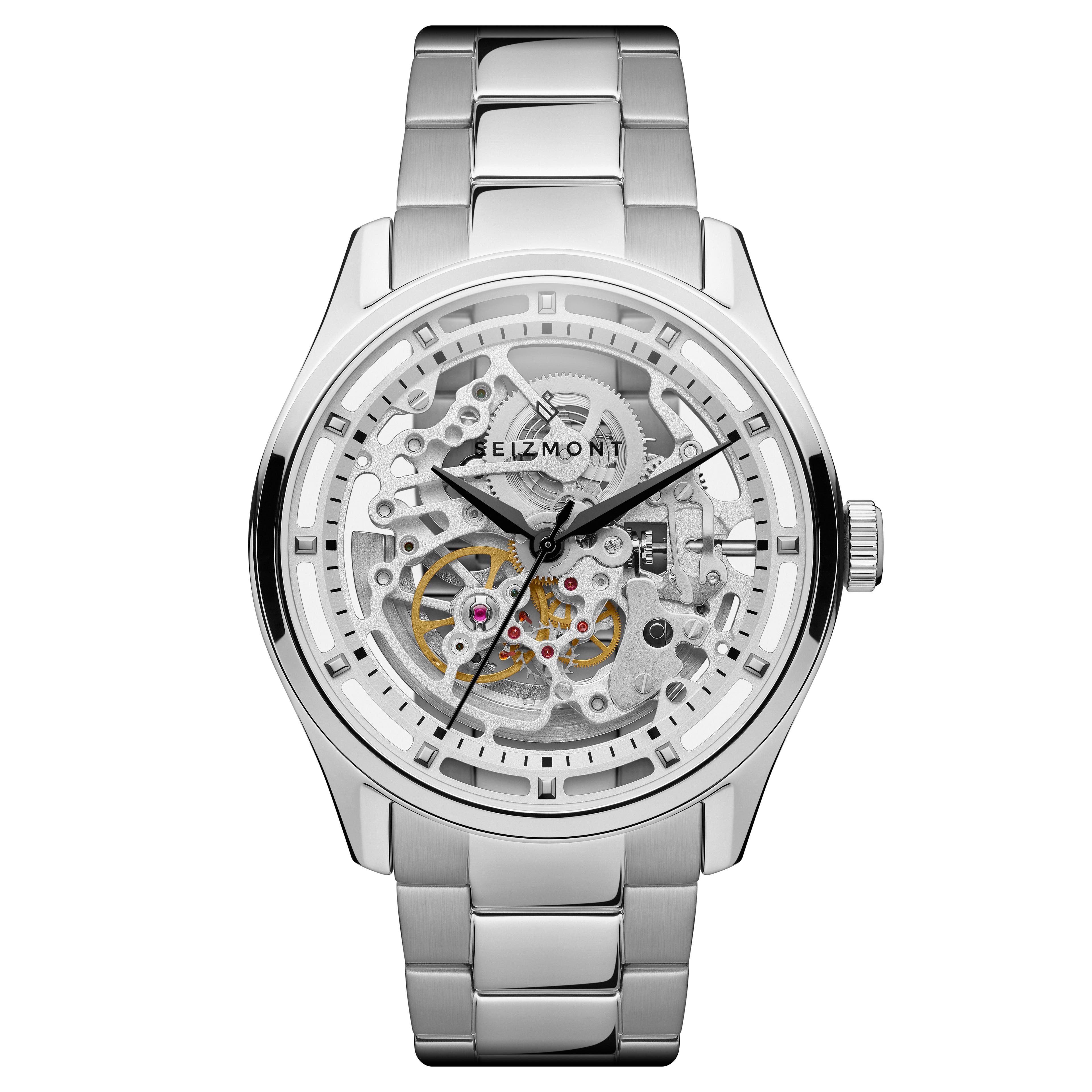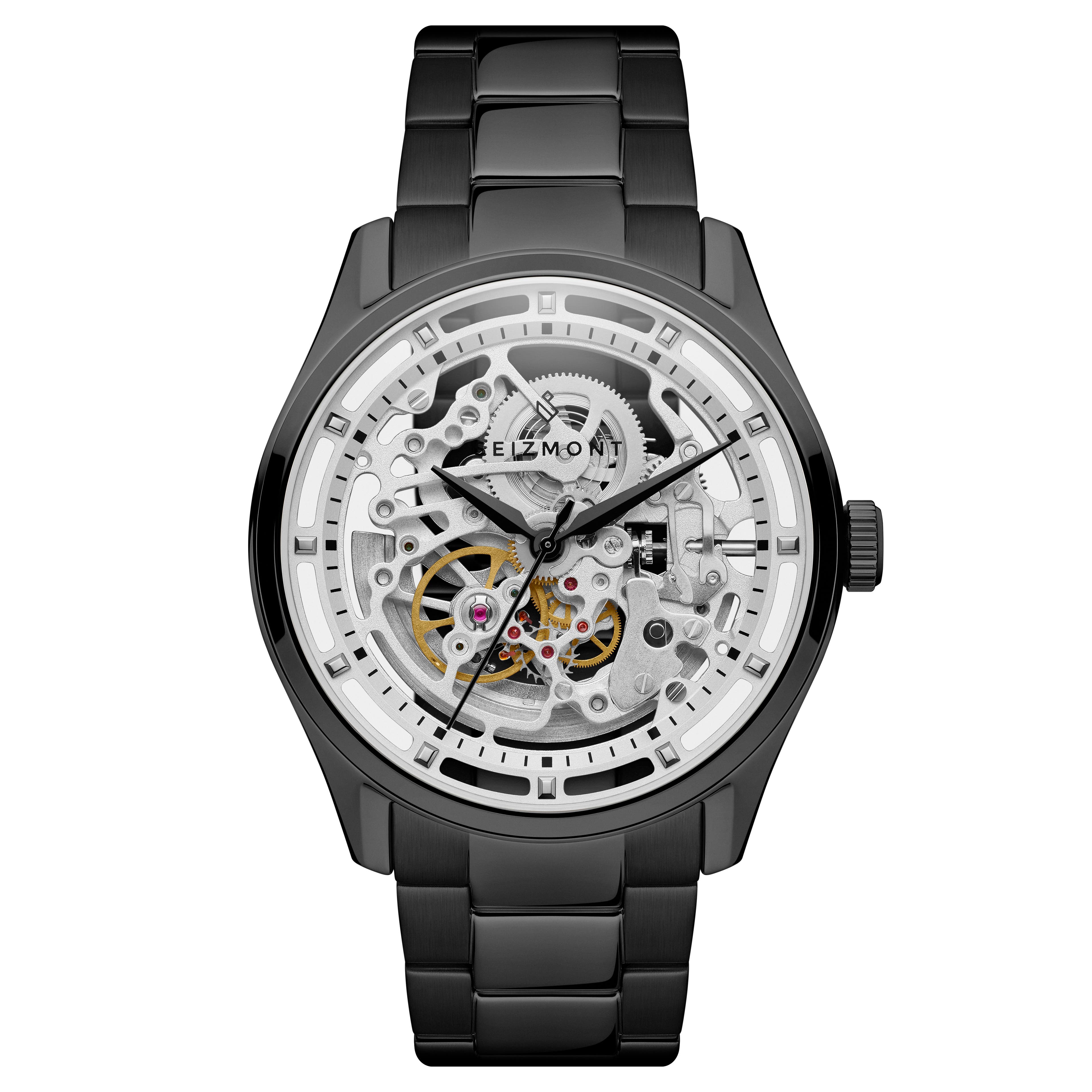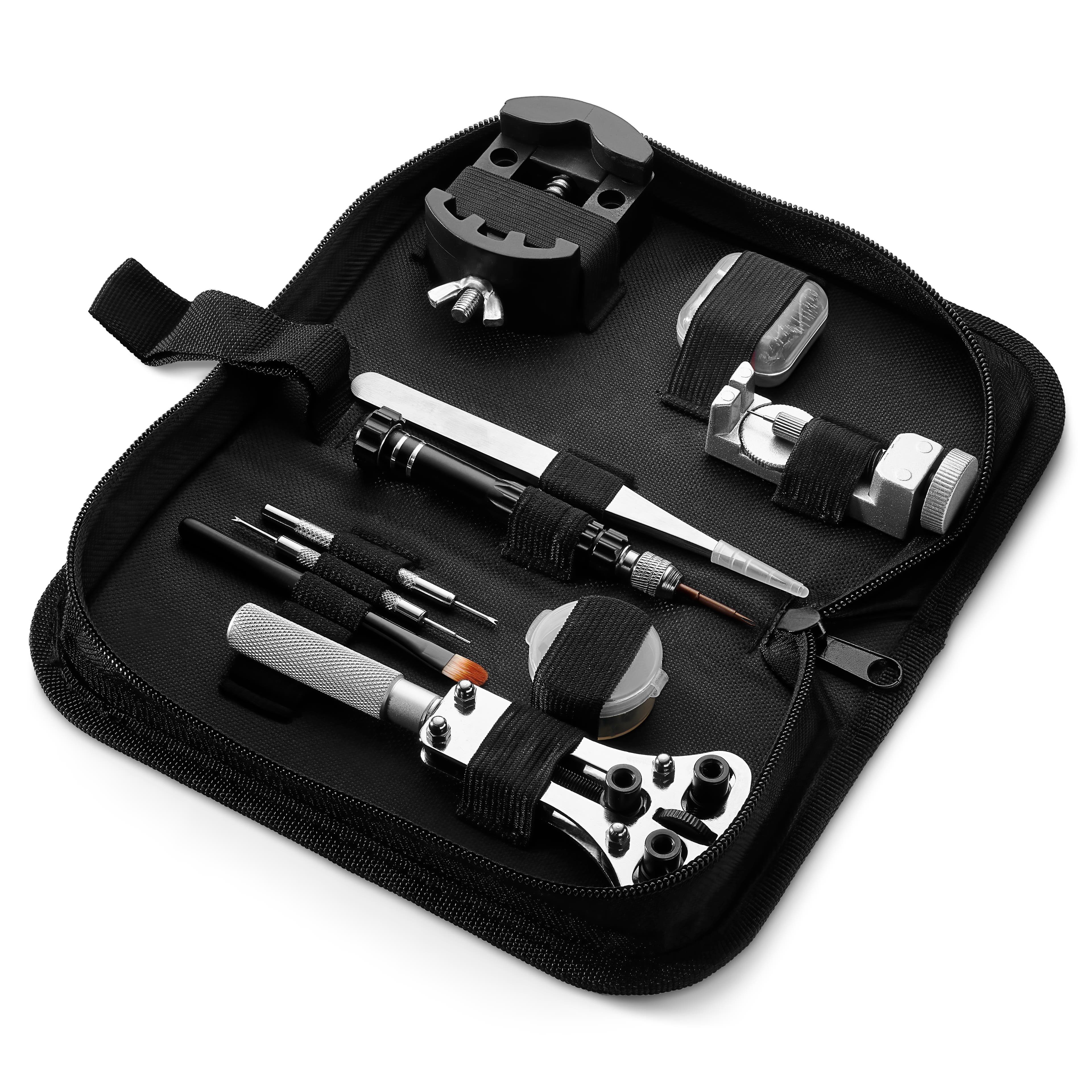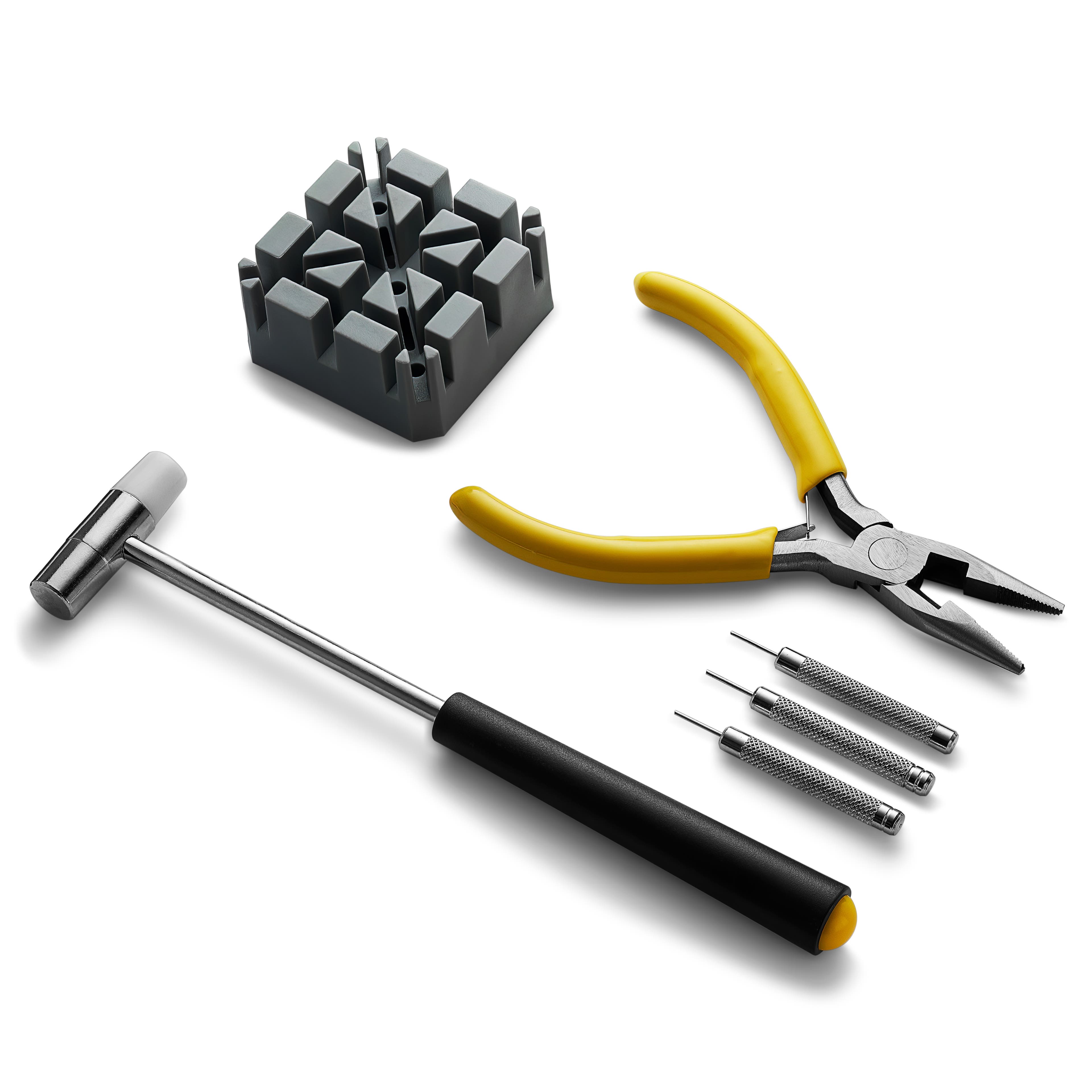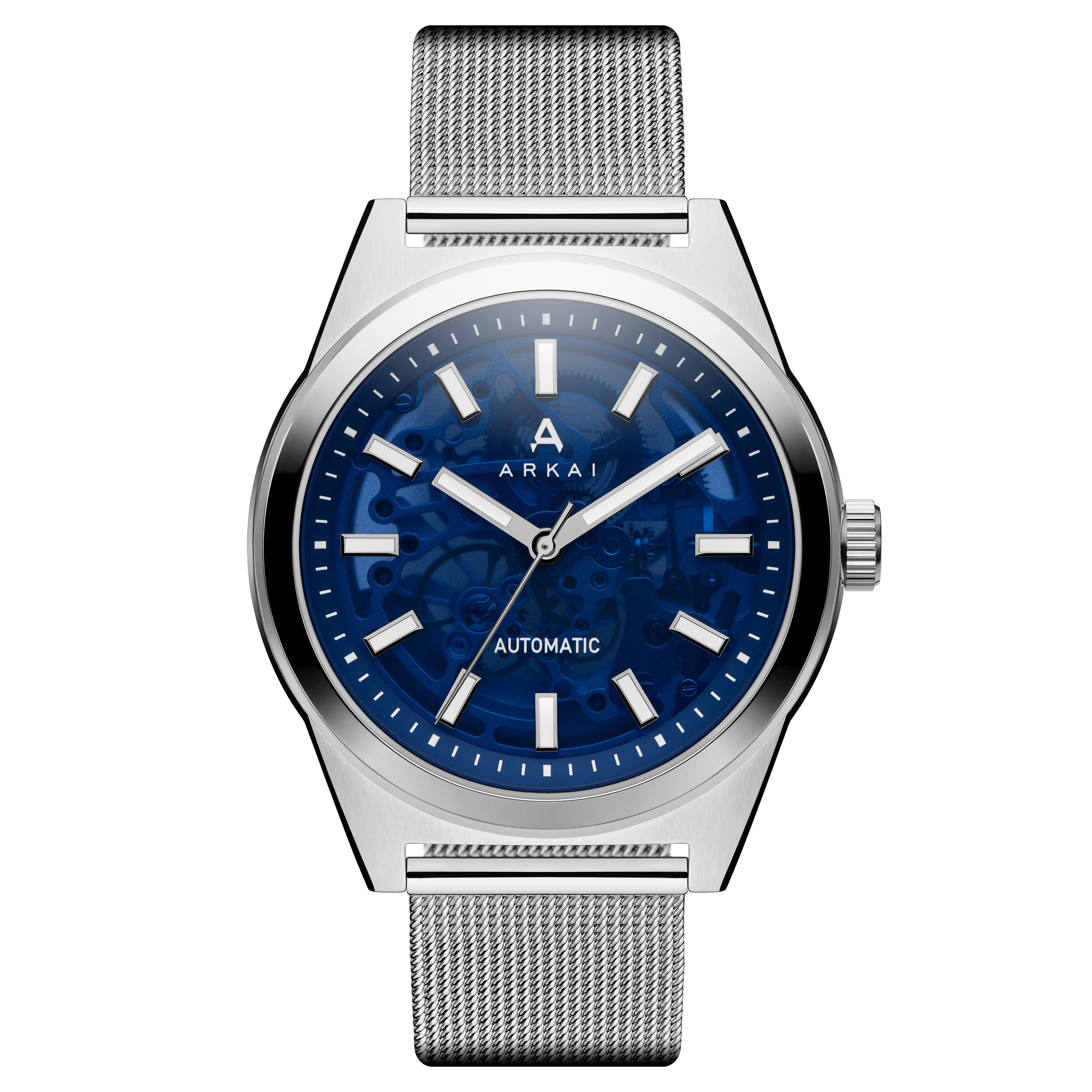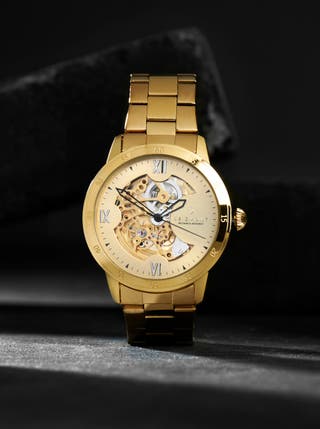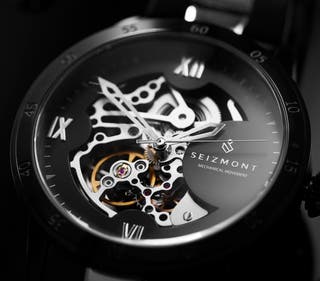4 Questions to Ask Before Buying a Skeleton Watch
Whether you’re spending hours or minutes deciding if a skeleton watch is for you – and offering to spend for quality movement and materials – you owe it to yourself to make the most of that time. How do you do that? By asking the right questions.
Regardless if you’re a first-time watch buyer who has decided to pocket your smartphone or a guy with a watch collection under lock and key, buying a skeleton watch is a big undertaking. It’s easy to fall so in love with a design that you lose sight of the more practical considerations: Is it self-winding? Can I replace the straps? Can I actually read the hands and tell the time?
To help you keep track of the many details that make a skeleton watch great (or not-so-great), we’ve put together this checklist of questions to ask before buying yours.
1. What type of movement do you want?
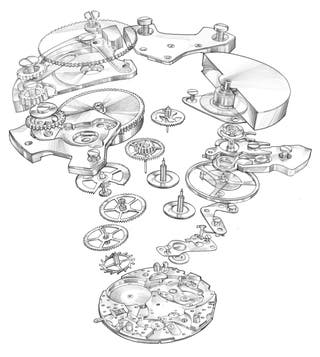
When it comes to skeleton watches, there are 2 types of movement that really matter – automatic (self-winding) and mechanical (manual winding). These movements are what see-through watches are all about – being able to see the inner workings move in perfect rhythm.
Automatic watches are self-winding and charged by the movement of your wrist, not by batteries. As you wear the watch, power gets stored within a spring. Automatic watches are classified as mechanical watches because they can be manually wound as well.
There are skeleton watches with quartz movement (battery-powered), but these don’t offer the same experience as mechanical skeleton watches. Many have cut-away skeleton dials that only look like gears and cogs.
Skeleton see-through watches and pocket watches are usually expensive because of the type of movement they have. Creating an automatic mechanical skeleton watch costs more than one with quartz movement.
What happens if your automatic watch stops? You can’t wear your wristwatch forever. What happens if an automatic watch stops? Automatic watches need to be self-wound (by your movement) or manually wound to charge their power reserve. Without it, they will unwind and stop working once the reserve is depleted – somewhere between 36 and 48 hours.
It’s not dangerous to let an automatic skeleton watch unwind. Letting it use up its power reserve will not damage the movement. If you’re concerned with accuracy, keeping it wound is the way to go. Use an automatic watch winder when you’re not wearing it or wind it manually every day.
When it’s time to put your automatic watch back on, wind it by hand to get it started again.
Showing Lockable Polished Black Rotary Watch Case - 5 Watches, Dante | Black Stainless Steel Skeleton Watch With Black Dial & Silver-Tone Movement, Limited Edition - Jacob Dante Watch, Ambitio | Black Watch With Black Rotating Dial & Stainless Steel Mesh Strap, Kristian Mariner Watch & Julian Troika Watch
Do you need a watch winder? One of the benefits of a winder is it will keep your automatic watch on time and ready to wear. No need to constantly reset your watch when you decide to wear it again.
2. How much of the dial do you want to see?
Assuming you decide on a mechanical or automatic skeleton watch, the next question is how much gear exposure you want. The beauty of a skeleton watch is that the dial is either completely or partially removed and the inside of the watch is on display.
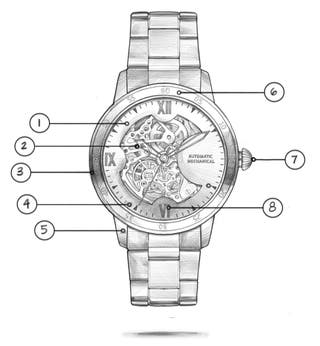
- Dial
The dial is the part that's been cut down on a skeleton watch. Also called the face of the watch, the dial displays the time and consists of the hour markers and hands.
It might be difficult to read the time on some completely skeletonised watches because the hands blend in with the background. If this is an issue, consider a
skeleton watch with a partial dial – where the numbers are still visible and it’s easy to glance down and read the time. - Hand
The hands point to hour markers to show the time. - Case
Think of the entire watch… the case is what keeps it all together. Watch cases can be anything from plastic to gold. Stainless steel cases are a great option for price and durability. The case back can also be in metal or glass if you have an exhibition case back watch. - Crystal
The clear part of a watch – the part that you look through – is called the crystal. It can be made of glass, plastic or sapphire. Sapphire crystal (sapphire glass) is the most scratch-resistant option and will affect the price. - Lugs
Lugs are usually made of metal and attach the watch case to the straps. If you’re interested in changing
watch straps, make sure they’re connected with quick-release pins for an easy change. - Bezel
The bezel is the ring surrounding the watch face that holds the crystal in place. Some
watch complications utilise the bezel. - Crown
The crown is the part of the watch that sets the time, changes the date or, on a mechanical skeleton watch, winds the mainspring. Think of the crown as the command centre. - Hour Marker
Hour markers come in many forms – standard numbers, Roman numerals or even dots – and indicate hours 1-12.
What’s the difference between Openwork Watches, Skeleton Watches & Open Heart Watches? To many watch aficionados, a true skeleton watch is one where the plates and bridges are decorated with intricate patterns and designs. It’s this decoration that separates skeleton watches from openwork watches.
Openwork watches still have exposed clockworks, but they’re missing the detailing that true skeleton watches offer. It’s important to note that openwork and skeletonised watches are quite often lumped together and called skeleton watches.
If you’re worried that removing too much of the dial will be hard to read or too eye-catching, take a look at Open Heart watches. These are mechanical watches with a small hole on the dial that reveals the balance inside. Open heart watches let you see the actual heart of the watch without sacrificing the design and decoration that is often found on a dial.
3. What colour metal do you typically wear?
Perhaps you already have a steel ring or steel bracelet that you’d like your skeleton wristwatch to work alongside? In these cases, it’s wise to match the colours of your metals. If you’re looking for a skeleton face watch that matches a gold ring, we recommend choosing a gold-tone watch with a metal band. And if you’re wearing a silver, steel or platinum ring or bracelet, go for a silver-tone skeleton watch and band to match.
What's your budget? The cost of a skeleton watch is greatly impacted not only by the movement but also the material of the watch case and band.
At the top of the list for white and silver-coloured watches, you’ve got platinum. It’s a heavy, hard-wearing metal that reflects its rarity in the price. Silver isn’t a popular choice because the metal tarnishes easily and most stainless steel can pass for silver at a much better price.
For yellow and gold-coloured watches, there’s always gold. If you don’t want to fork out all that cash for real gold, opt for gold-tone stainless steel. You’ll get the look you’re after at a fraction of the cost.
How hard-wearing should your men’s skeleton watch be? Do you work with your hands or do you intend to wear your skeleton watch every day? In this case, it can be a good idea to go for a hard-wearing metal like stainless steel.
Though stainless steel is commonly associated with appliances and kitchen utensils, it’s also a popular choice for watches. Stainless steel is silver in appearance and can be polished to shine or brushed for a matte finish. It retains its colour and doesn’t tarnish. It can also come in a range of colours that mimic gold and rose-gold. Stainless steel is easy to clean, highly durable, scratch-resistant, and corrosion-resistant. It’s also much less expensive than other metals.
Whatever metal you choose, make sure that it’s hypoallergenic to reduce the risk of an allergic reaction. At Trendhim, all of our metals are tested for nickel and are certified nickel-free and safe to wear.

4. What story do you want to tell with a skeleton watch?
Before André Charles Caron created the first skeleton watch in 1760, a watch’s inner workings were always hidden to protect them from the elements. But Mr Caron had other plans. He knew that the secret within was something worth sharing… he knew there was a story inside waiting to be told (seen, at least).
That’s the foundation of the last question you have to ask yourself – what story do I want to tell? We believe that accessories are the small details that make a moment memorable. The watch you wear is one small way to express who you are without having to say a word.
Are you after a steampunk watch or something elegant to wear on a professional level? Skeleton watches for men are eye-catching and guaranteed conversation-starters, but the size and design of the timepiece can affect how you wear it.
A general rule is that the watch case should be proportionate to your build – not too bulky and not too delicate. Click here for more on watch case sizing and how to make sure yours fits.
Also, consider the practical aspect of the skeleton watch – mechanical skeletonised watches won’t need batteries but will need to be wound. Automatic watches use your movements to power and will keep you from having to wind at all. The ritual of winding a watch is something many watch collectors talk about. It’s the physical connection to their skeleton watch that starts each day. Could that be something for you?
Are you looking for something for a special occasion or a gift? Then maybe a limited edition skeleton watch is the answer. It’s something that matches your personality and is a true one-of-a-kind statement piece. And you’ll be one of the only men in the world with that timepiece. Or do you want something casual to wear every day?
No matter what story you’ll tell, if you’re wearing something unique as a men’s skeleton watch, it’s going to be heard.

